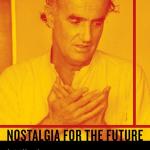Nostalgia for the Future

Nostalgia for the Future: Luigi Nono's Selected Writings and Interviews
Eds. Angela Ida De Benedictis and Veniero Rizzardi; trans. John O'Donnell; foreword by Nuria Schoenberg Nono.
University of California Press
ISBN: 9780520291201
Luigi Nono (1924-90) is universally recognised as having been one of the most significant figures of post-war classical music. But for over half a century, what has always distinguished him from his contemporaries is the prominence of a looming ‘extra-musical’ preoccupation: politics.
Mainstream exploration of Nono’s politics is usually limited to identifying him simply as a ‘communist’ (an easy way of stirring up convenient hysteria), giving no time to his ardent criticism of ‘bureaucratic Stalinist authoritarianism’ or of top-down socialism in general.
This volume of journals, letters, speeches, and interviews - the first ever published in English - gives the reader a tour of a vibrant and non-dogmatic socialism fuelled by the likes of Rosa Luxemburg, Antonio Gramsci, and György Lukács.
Nono’s creative output stands as an exemplary response to the all-too-common demand for ‘musicfor music’s sake’, a stance presumably founded on the spooky (and obviously nonsense) assumption that music exists completely independently of people. This sort purist rhetoric is consistently poopooed by Nono, particularly clearly in his invoking of Merleau-Ponty’s phenomenology when exploring musical understandings of language. That is to say, he’s overtly engaging with an all-encompassing and fiercely sensual materialism that rejects the conventional idealist distinction between the world as it appears and the world as it really is.
Throughout his career, the scope of Nono’s activity goes some way toward ‘decentralising’ the role of the composer, breaking with distinctly Western (and dare I say, class-based) idolatrous conceptions of what ‘the Composer’ is and should be. This becomes clear in his engaging with such radical processes of artistic collaboration that notions of single authorship become meaningless, and through explicitly Sartrean extensions of his moral duties to matters of great social importance, whether that be participation in the revolts of 1968 or in the anti-war movement.
‘For , political militancy was inseparable from his activity as a musician continually in search of new sound worlds. Composing, making, and disseminating music represented a dialectic synthesis of art and life which he saw as the only means for a composer to “attain full self-realization”’ (p.8)
Nono’s letters recall numerous instances of organised hostility to performances, notably a picket in Los Angeles (also circulating racist material) branding his overtly antifascist theatre work Intolleranza as ‘red propaganda by those who want to destroy the USA’ (p.188).
And as platforms evolve and broaden, the potential significance of a more overtly holistic approach to artistry becomes more important than ever, as Dave Randall so clearly articulates in his compelling book Sound System:
‘Those of us who love music have a role to play … We mustn’t shy away from making music that is overtly political…’ (Dave Randall, Sound System, p.196).
Perhaps some of the most poignant insights offered here are regarding the nitty-gritty of his later aesthetics, in particular his fascination with the idea of ‘mobile sounds’. Through detailed study of the harmonic nuances of ancient Hebrew chant, and by working closely with instrumentalists to find new and extremely delicate registers of their instruments, Nono builds a sound world of incredible vitality, with sounds living on the threshold of being and nothing. This is of clear dialectical significance, with Nono dishing up a music of intense ‘becoming’, haunted by a Wanderer whose only path is going onwards (‘Caminante, no hay caminos. Hay que caminar’).
The real triumph of this collection is in presenting Nono’s creative work and politics as a fully integrated whole (of terrifying sophistication). The Revolution, unfortunately for the bourgeois critic, is not some kind of sticky slogan that can be peeled off for more comfortable enjoyment of this music; it lives in the presence (and absence) of every note Nono penned (and didn’t pen).
Thomas Gibbs is a London-based composer/performer, writer, and political activist from Newbury, Berkshire.
